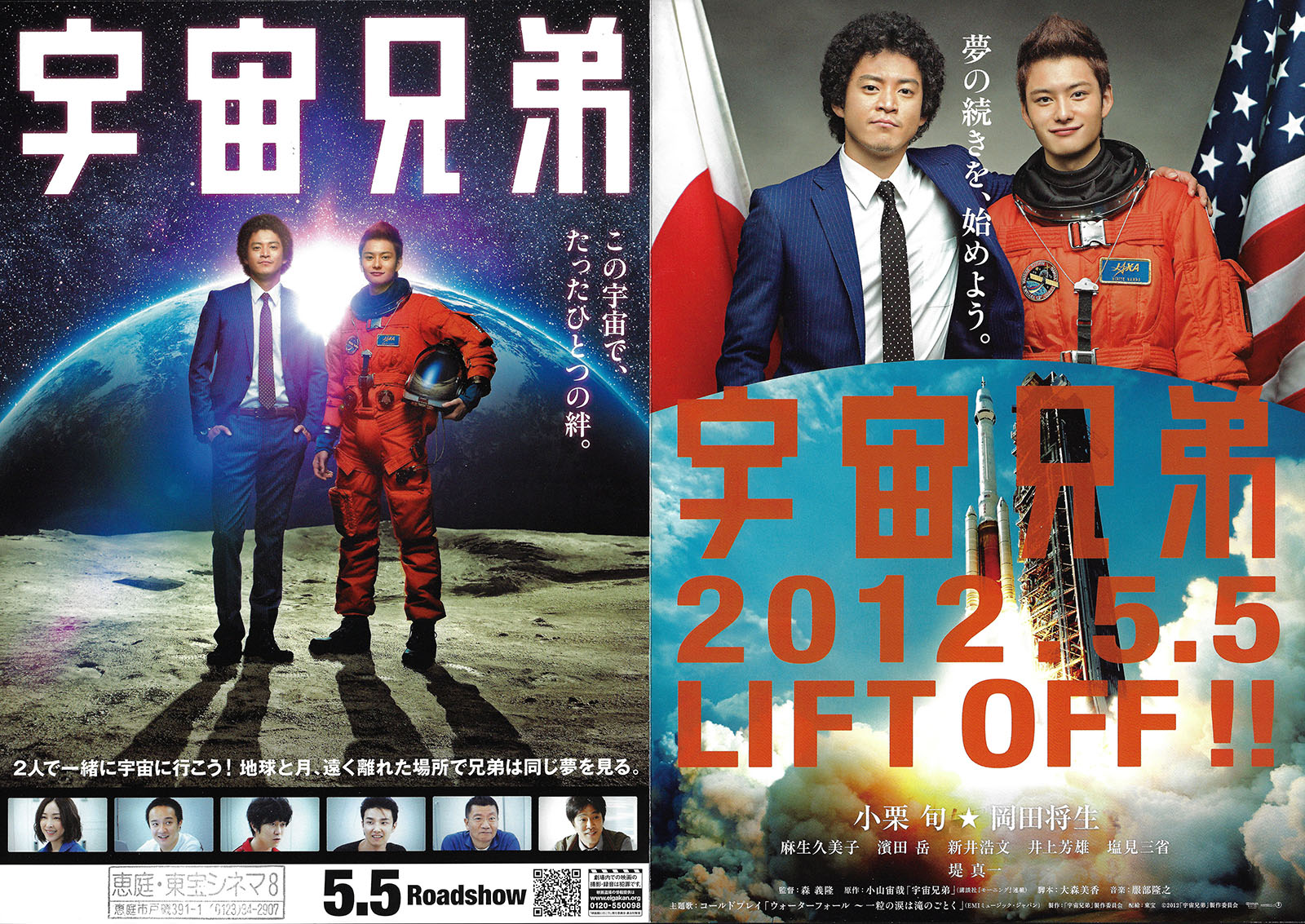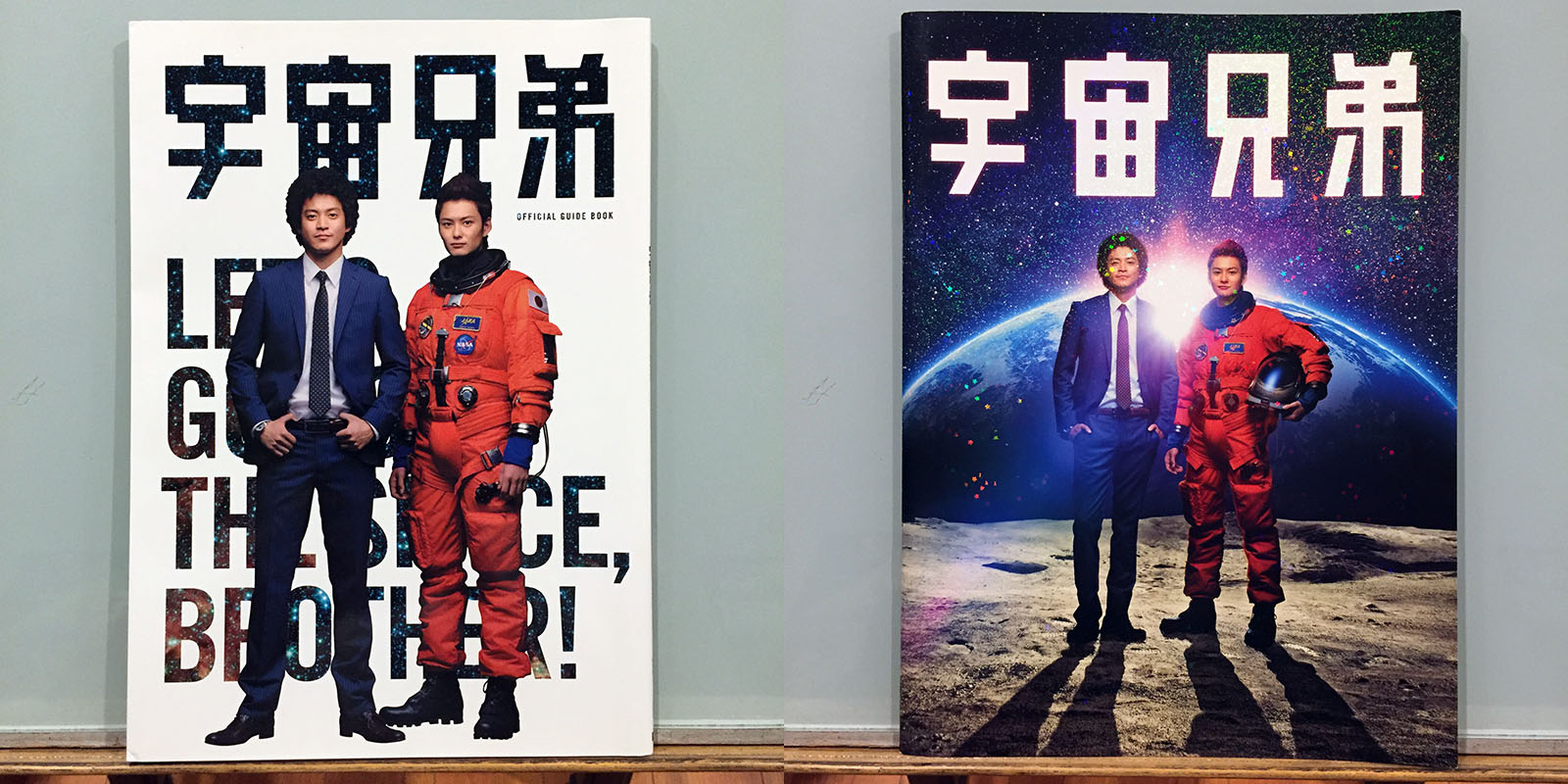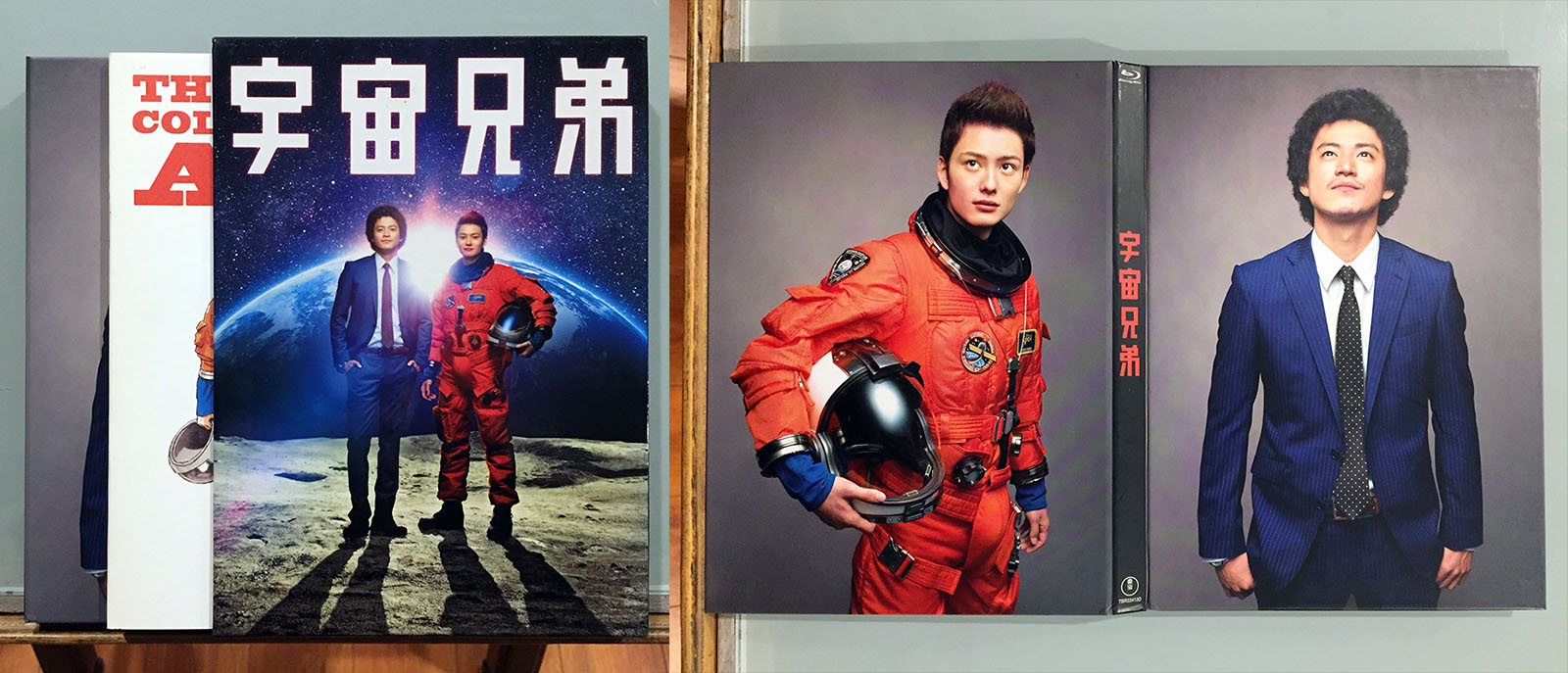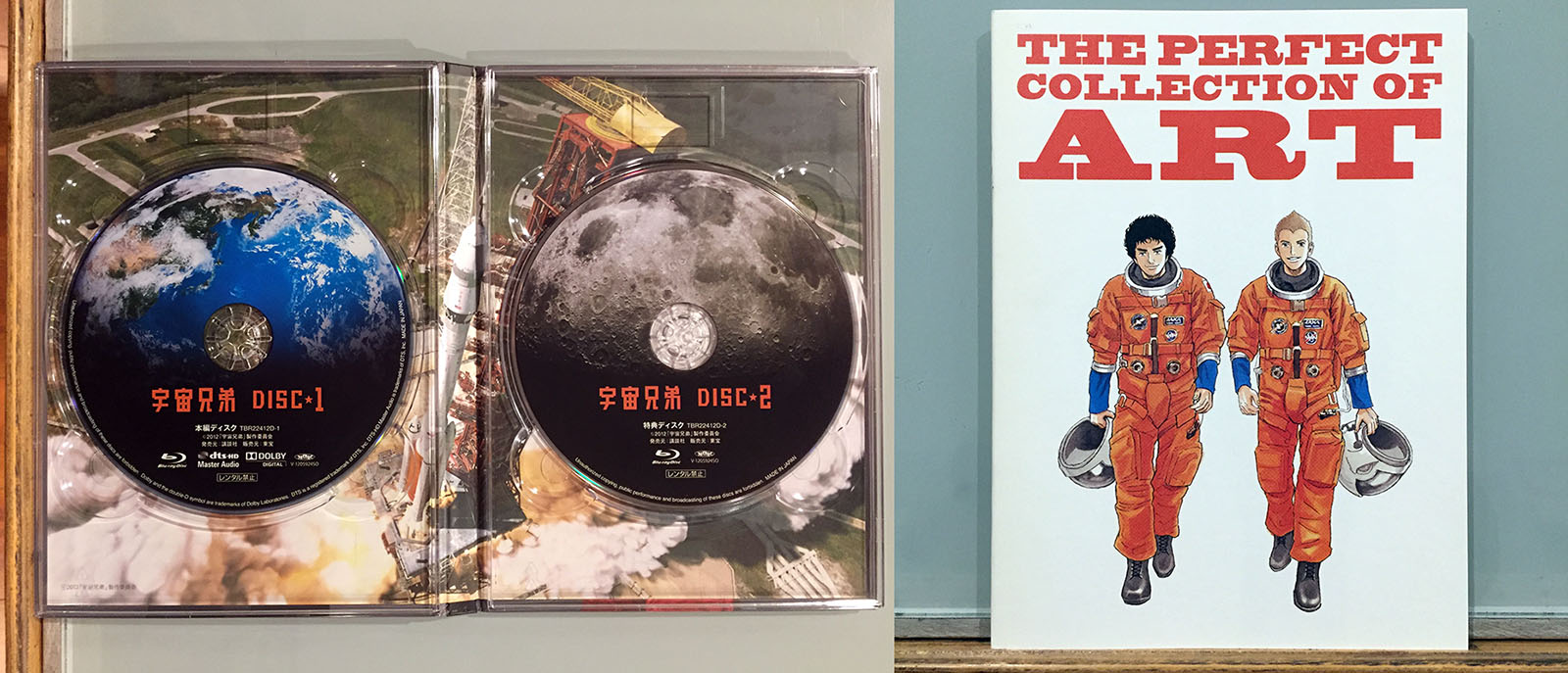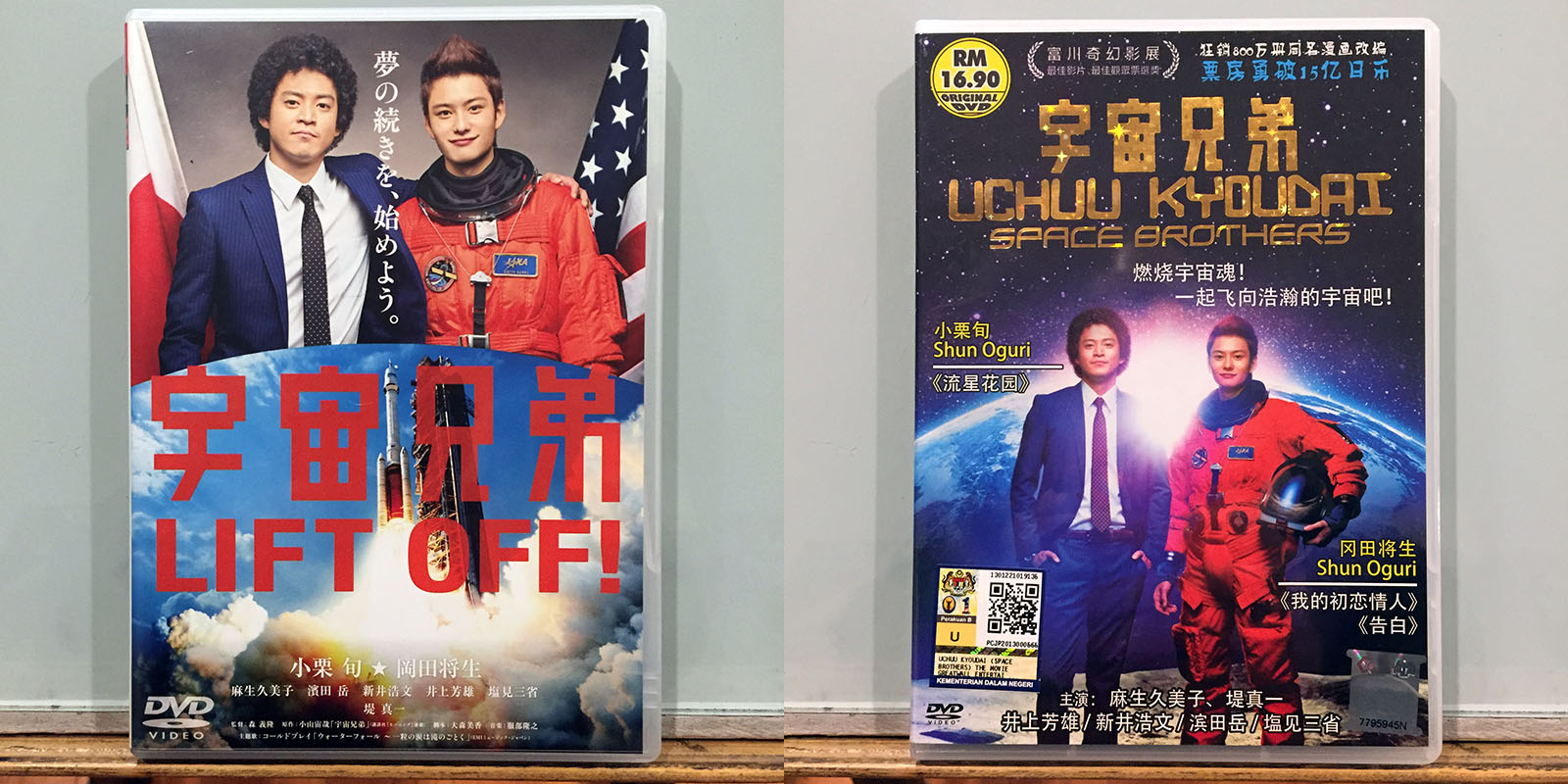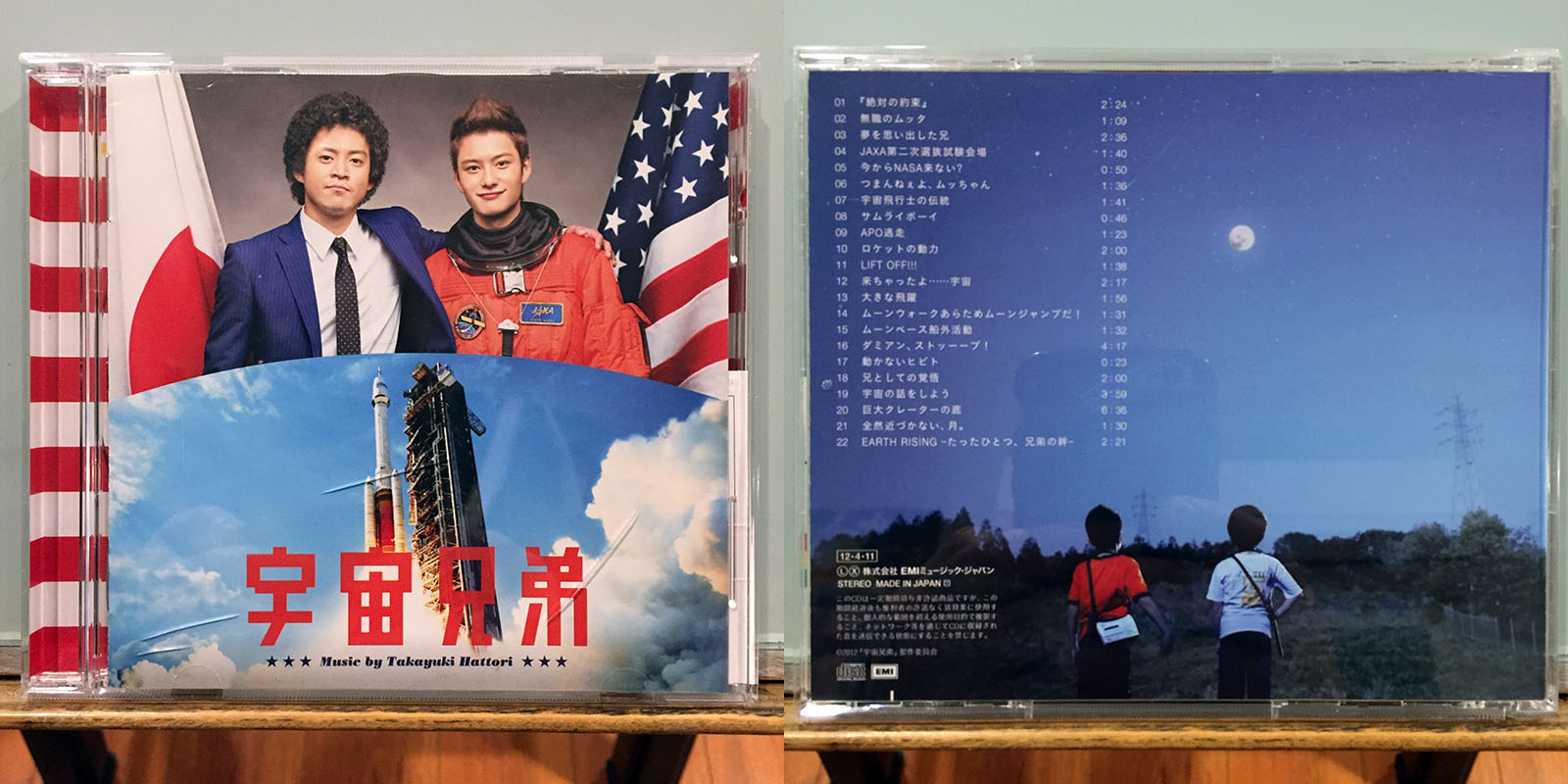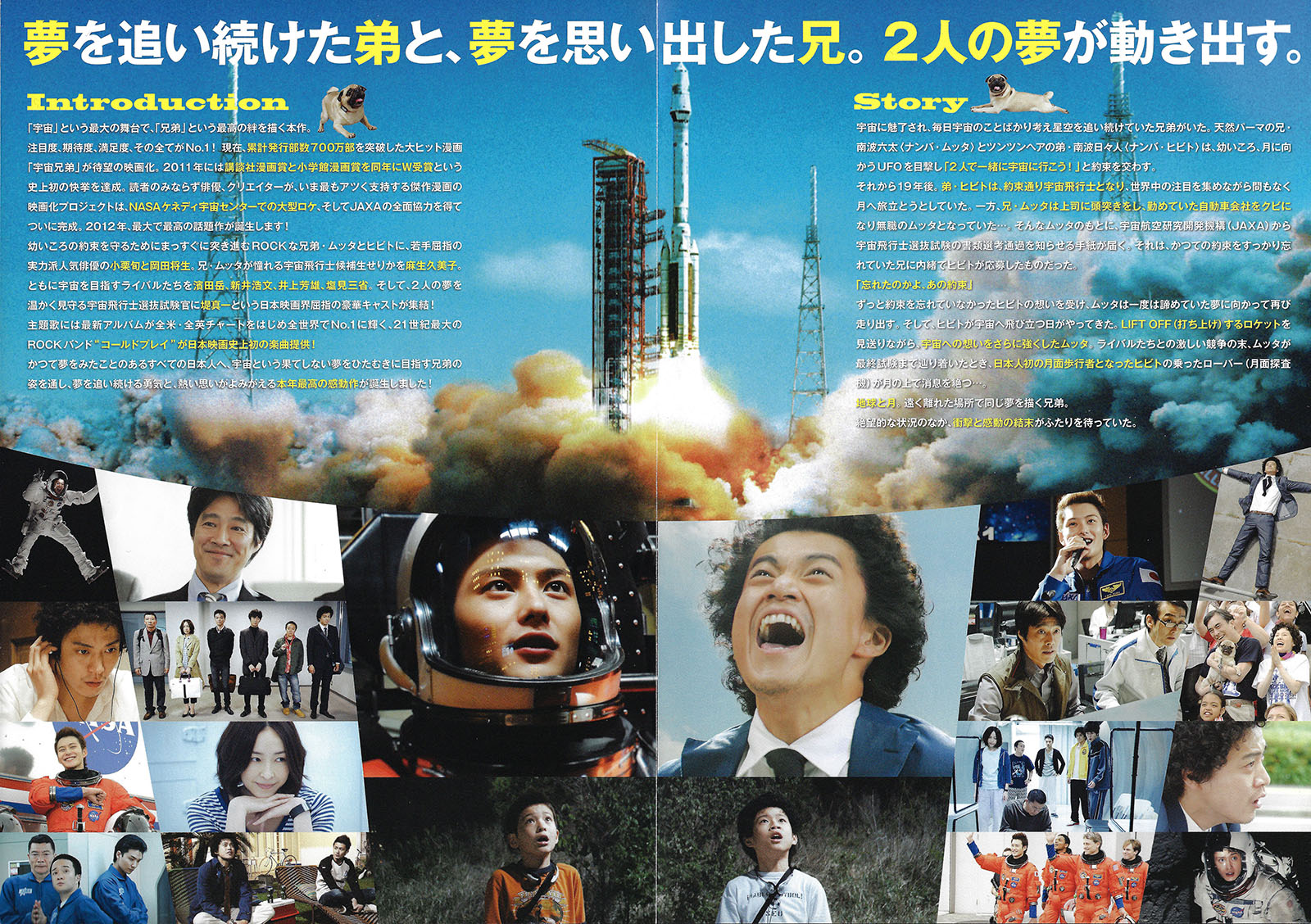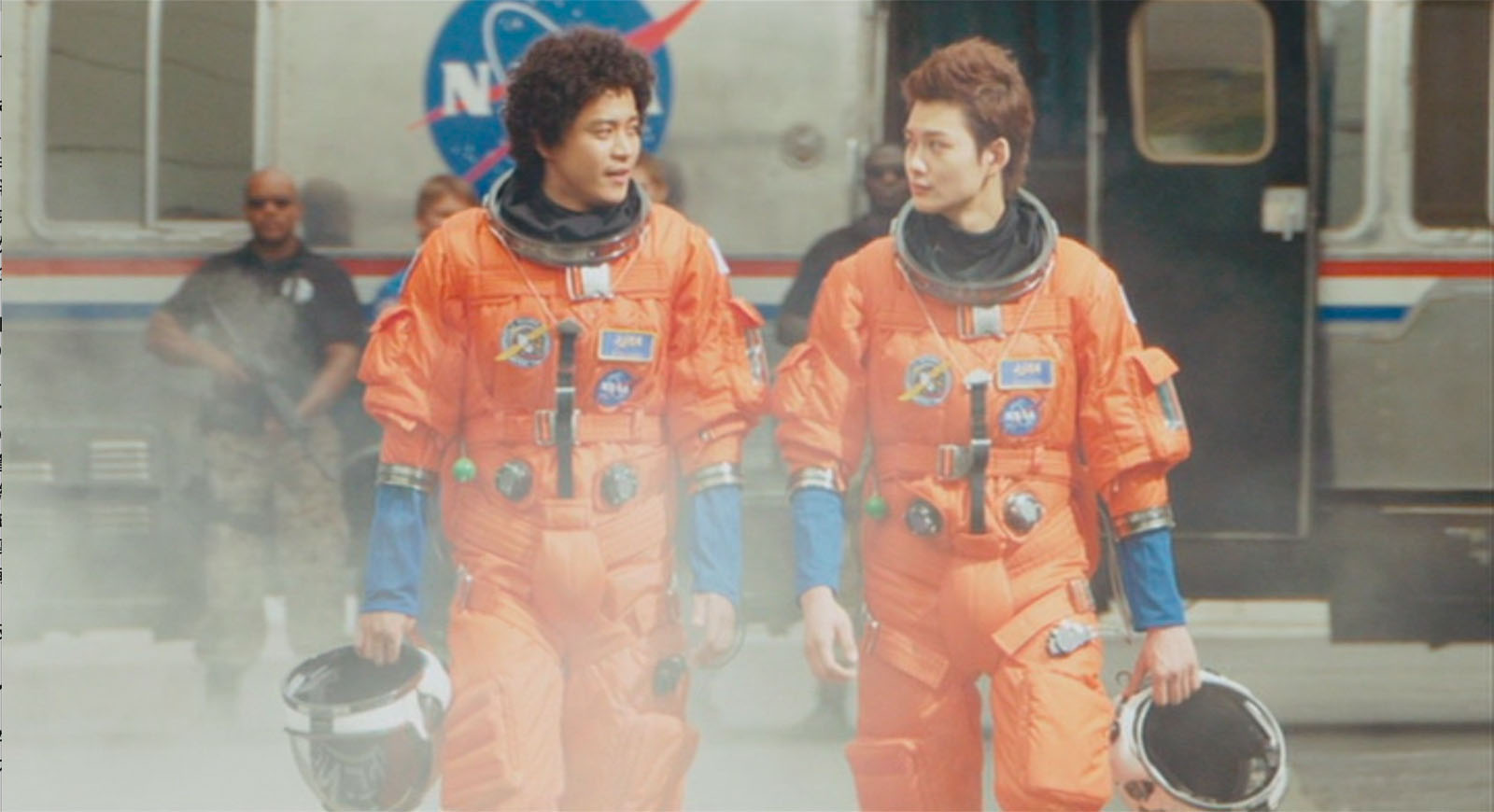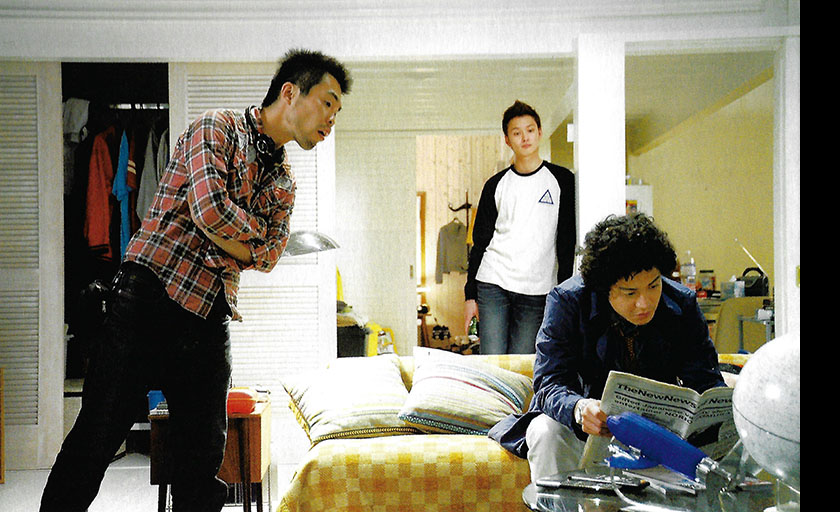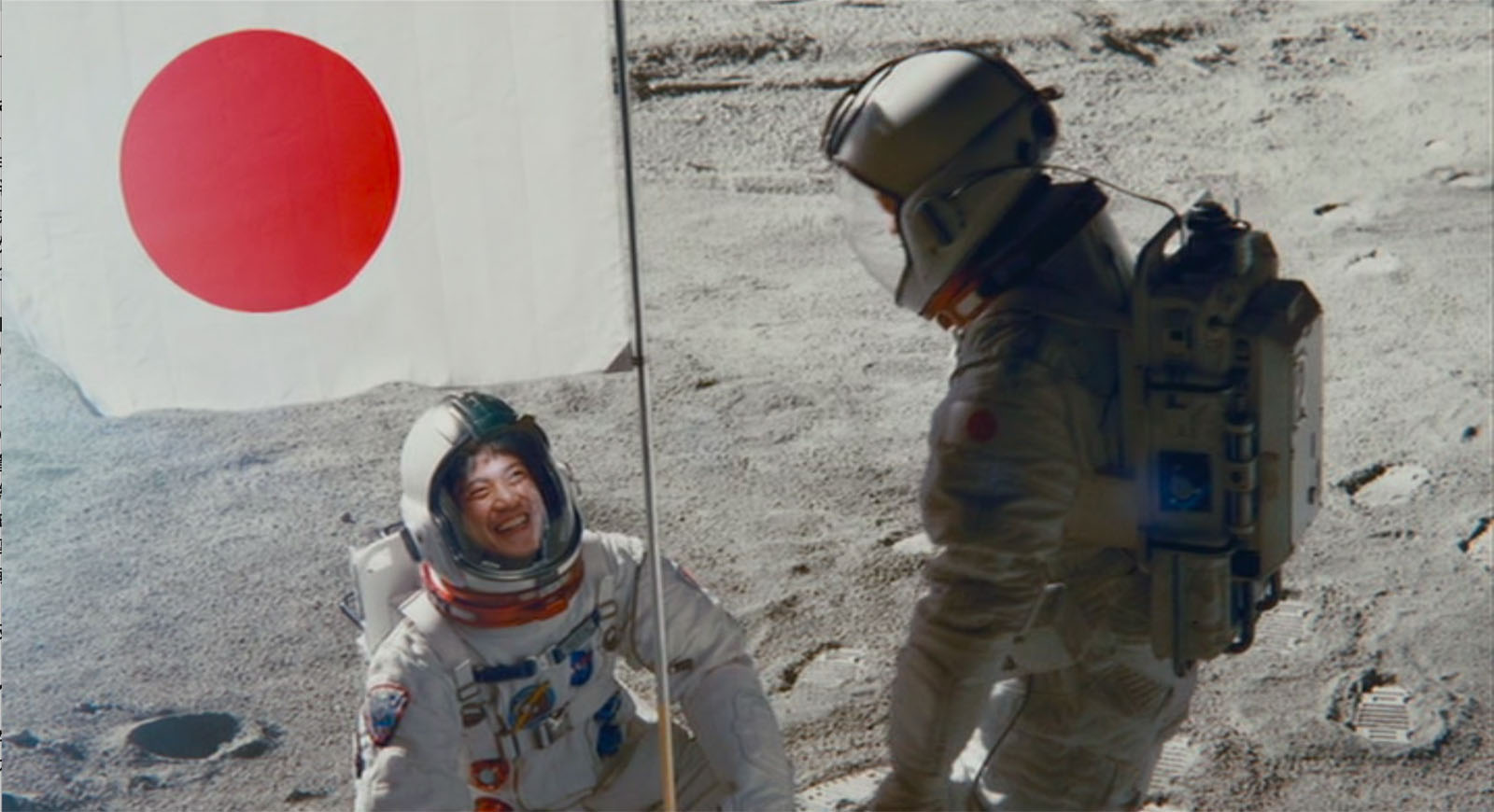Space Brothers live-action movie
The movie was released on May 5 2012 at Toho theaters in Japan and came to home video at the end of the year. Regrettably, it has yet to receive a western release. The only way to legally view it is by importing an untranslated Japanese edition. However, a Hong Kong bootleg with passable subtitles does exist. Either way, it is absolutely worth seeking out, and its incredible music score requires no translation at all.
See 2012 trailers here and here.
Here’s everything I’ve been able to gather on the film…
Space Brothers Official Guide Book
Extensive stills, interviews, articles, and backgrounders on the film.
Color, 82 pages
Tokyo News Service, April 2012
Space Brothers movie program book
Stills, articles, and interviews for the film, sold in movie theaters.
Color, 40 pages
Shochiku Toho, May 2012
Special Edition Blu-ray
Toho, December 2012
A box set containing two discs, one for the feature and the other for extras. These include a short film from the brothers’ childhood titled The Other Space Brothers (re-edited from deleted footage), interviews, making-of documentaries, opening day events, and trailers.
Also included is a 60-page art book (shown above right) containing previz art, production designs, and storyboards.
Order it from Amazon.co.jp here
Standard Edition DVD
Toho, December 2012
Includes trailers and a promo video
Bootleg DVD
Great Wall Entertainment
Subtitles in English, Chinese, and Malay
Original Soundtrack by Takayuki Hattori
The film score in no way crosses over with the anime score, which was composed at roughly the same time, but is just as rich and magnificent, effortlessly living up to anything you’ve heard in an American-made astronaut movie. The composer Takayuki Hattori has both anime and live-action projects on his resume including Slayers, Martian Successor Nadesico, Gundam The Origin, two Godzilla movies, and much more. See his credits here.
Released April 11, 2012
EMI Music Japan, TOCT-28076
Hear the entire album on Youtube
The OST does not include any of the songs heard in the film, but they’re all on Youtube at these links:
Opening Theme: Rocks by Primal Scream (from the album Give Out But Don’t Give Up)
Insert song: Hoppipola by Sigur Ros
Ending Theme: Every Teardrop is a Waterfall by Coldplay (from the album Mylo Xyloto)
“I want to see who the actors are, not what they do.”
Interview with Director Yoshitaka Mori
from the movie program book
Interviewer: Why did you choose this as your second feature film?
Mori: A film is a long span of work, but I thought that “brothers” and “space” were themes that I should think through even if it took me a couple of years. Also, I’m in the same generation as the original author Chuya Koyama, his editor at Morning magazine, and the producers at Toho, Genki Kawamura and Hisashi Usui. They chose me, who had only made one feature film, to direct this film. I wanted to live up to that spirit, and I had a feeling that this would be an interesting film to make. I felt that I had to do it. I was very excited to take on this project.
Interviewer: What was important to you in telling the story?
Mori: I thoroughly pursued the relationship between the brothers, two people who have been together since birth. I thought it would be a story about space which lies beyond that. It could have been like “Utsunomiya Brothers” with Utsunomiya as the goal. (Laughs) But I tried not to lose the fun of the original story, which had the most magnificent place as its destination.
Interviewer: I heard that you were very persistent in your direction.
Mori: (Laughs) I don’t know, because I’ve never been to another director’s set. For me, I don’t want to see the acting, I want to see who the actors are. For example, in Mutta’s case, it’s meaningless unless it’s the Mutta that 28-year-old Shun Oguri can create.
Then others come into the film, like Masaki Okada. I was just watching the scene, wondering what would happen. Would I keep it going for a long time and get too many takes? The criteria is whether or not my heart is moved. If I don’t believe in it, I don’t know what to do with it. In fact, there were a few times when tears flowed down my face. I tried not to let it happen, but the recording man found out and made fun of me. (Laughs)
Interviewer: Which scene, for example?
Mori: In the “I’m Sorry, Mu-chan” shot on the moon, I was so moved that my tears were flowing. I said, “One more time.” I thought it would be even more moving. (Laughs) Okada-kun did a great job in that area. He managed to get through that part of the shooting even though he was physically and mentally a wreck. He was sacrificing himself for the film and dedicating himself to Hibito, and he was able to pull it off beyond my imagination. I thought, “Wow, I’ve come to the right place,” and I got greedy and said, “One more time.” (Laughs)
Interviewer: Were you also directing Oguri-san in that way?
Mori: The way I interacted with Oguri-kun was completely different from Okada-kun. I had thorough discussions with Okada-kun, but with Oguri, we created Mutta by sharing our sensibilities with few words. The most gratifying thing about shooting with Oguri-kun was that I was able to OK the scene of the final interview without giving him any direction. I was moved by the fact that Mutta, whom we had created together, was there.
Interviewer: You believe in your actors’ abilities and direct them.
Mori: To put it bluntly, I don’t care about acting ability as long as I can believe in the person’s way of life. If you ask me if there is anyone in this film that I don’t believe in, there is no one. Actors are people who try to express themselves by exposing their minds and bodies. They are all wonderful.
Interviewer: You were originally a documentary filmmaker, and I feel your attitude toward people is reflected in your work.
Mori: Maybe I’m optimistic, but I tend to like everything I see. You can’t judge good and evil with dualism. In other words, I think there are times where right and wrong don’t matter. (Laughs) What I learned from making documentaries is to look at every character and every person sincerely with my own sensibility. In the end, I think my style is based on how I look at people.
At the start of this production, I was 31 years old. If I had made this film when I was 33, it would have been different. It’s okay to keep changing, to regress, to fall, but I have to throw my feelings into the theme properly. Otherwise, I don’t think I could make a film.
Interviewer: Lastly, how did you feel facing the theme of “brothers” this time?
Mori: I was 31 years old, the same age as Mutta, and my brother was the exact same age as Hibito. It was around that time that we both decided on our own paths in life, and suddenly we were able to have conversations not brother to brother, but man to man. Because of this, I wanted the last two shots to be about a man and a man. I wanted to make it look like two men aiming for space, not two brothers.
As I delved deeper into “brothers,” I realized that Mutta is not aiming for space without Hibito, and vice versa. Until I finished making this film, I thought that the power to move forward, to achieve one’s dreams, was something that should be generated by oneself. But actually, it’s not. It’s important to ask for help from others. It changed the way I perceive the motivation to move forward.
Interview and text by Yumiko Mori

